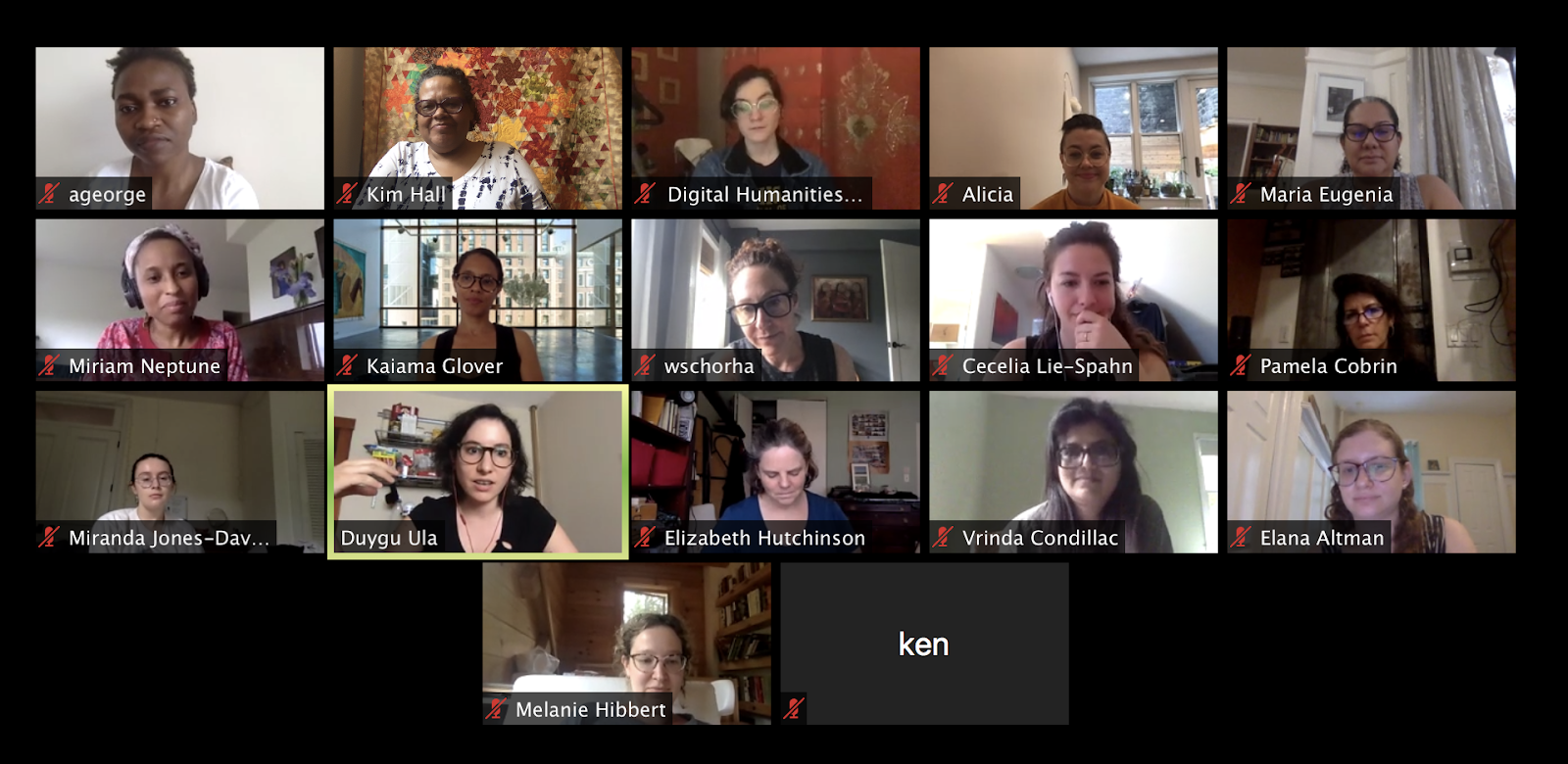by Miranda Jones-Davidis
Hi all!
The Digital Humanities kicked off the summer by hosting its first ever Thinking Digitally Summer Institute. The DHC team and many other dedicated library staff members collaborated with humanities and social science faculty members to develop syllabi for Barnard’s Thinking Digitally requirement. The Institute took place on May 26th through May 28th over Zoom, with asynchronous tutorials available through Canvas.
Faculty and Staff discussed readings together over Zoom
The faculty members came from a wide variety of backgrounds and disciplines, with different levels of experience and comfort with technology, so each person had unique perspectives to share during conversations about how to think digitally in the classroom. Faculty participated in discussions about what thinking digitally means and what digital pedagogy entails, they learned how to use digital humanities tools such as Hypothes.is, Twine, and Scalar, and they developed and scaffolded digital assignments. As they explored the capabilities of digital technologies for use in their classes, faculty members expressed feeling “liberated” by the productive frustration of being a student again and their experiences learning in the institute shaped the ways they viewed pedagogy, scaffolded their assignments, and developed syllabi.
As a student, I enjoyed seeing the amount of work and caring that faculty members put into developing their courses. And at the same time, it was fun to watch their experiences as they became students again and explored an unfamiliar subject. Seeing the different ways in which faculty learned material, viewed pedagogy, and developed their courses made me want to take all of their classes.
All in all, the Thinking Digitally Institute was a week of growth, constant questioning, and reflection. Faculty members came in with big ideas, and while they expressed frustration at times, they were eager to grow and develop skills in order to expand the limits of pedagogy in the classroom.
Thank you to all the faculty members who participated: Pamela Cobrin, Vrinda Condillac, Abosede A. George, Kim F. Hall, Elizabeth Hutchinson, Cecilia Brun Lie-Spahn, Maria Eugenia Lozano, Monica L. Miller, Laurie Postlewate, Wendy C. Schor-Haim, and Dugyu Ulla.
A special thanks to all of the library staff who provided endless support during the Institute: Elana Altman, Rachel James, Sophia Junginger, Joscelyn Jurich, Marko Krkeljas, Vani Natarajan, Annabelle Tseng, and Diane Zhou.
And finally, thank you to the TDSI Organizing team: Jennifer Rosales, Melanie Hibbert, Alicia Peaker, Kaiama Glover, Miriam Neptune, Taylor Faires, Miranda Jones-Davidis, and Sondra Phifer.
